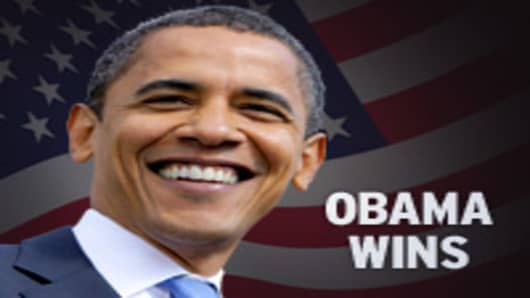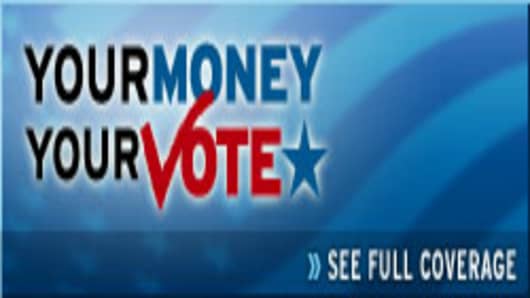SOCIAL SECURITY
The crush of pressing economic crisis demands has almost assuredly pushed the issue of Social Security’s long-term solvency to the back burner.
“Given the other issue we have on the table I find it hard to think they are doing a big Social Security reform,” says The Brookings Institute's Martin Baily. “Do I think it is going to be a priority? Sure, but not for awhile.”
Still, Obama has given some indications of how he will deal with the looming crisis:
- “Asking” those with annual income of more than $250,000 to kick in more (2 to 4 percent, split between employer and employee)
- A range of initiatives to encourage more savings, including a program for the government to match 50 percent of the first $1,000 of savings for families that earn less than $75,000.
- Employers that do not already offer a retirement plan, will be required to enroll their employees in a direct-deposit IRA account.
- Company pension programs will have to be more transparent, including issuing detailed annual disclosures about their investments.
There are also a number of measures to restrict company executives from feathering their own retirement nest eggs, while cutting into workers' pensions. This may involve changes in bankruptcy laws to try to put pensions higher in the debt payback chain.
TAXES
The rising cost of rescuing the financial sector and softening the recession will require a recalculation of Obama’s tax plan, which called
for trimming the federal income tax for the middle class — those making between $47,600 and $66,400. These were to be balanced by an increase on taxpayers making more than $200,000 a year ($250,000 for two-earner households) from the current 35 percent to the pre-Bush levels of 39.6 percent.
Obama's other tax proposals were to raise corporate taxes — especially on those exporting jobs through outsourcing — and to raise capital gains taxes (from 15 to 20 percent for families making more than $250,000), which seem to have less justification in the face of cratered equity and real estate markets.
Trading the Election:
Even tax-enthusiasts like House Financial Services Chairman Barney Frank, recently said it is not a good time for new tax increases.
In general, though the tax burden seems bound to go up, perhaps especially on the upper middle class. This is to make up for the swelling ranks of Americans who pay no federal income tax, even while contributing through payroll taxes to Social Security and Medicare. The number of Americans in this situation is projected to grow from 45 million to 63 million on Obama’s plan.
The US budget deficit is projected to sail past $1 trillion in 2009. The
Tax Policy Center says Obama’s current tax plans would push the deficit to at least $3.5 trillion over the next decade (McCain would have punched a $7 trillion hole), setting up a tussle over spending with Democratic fiscal guardians — the so-called Blue Dog caucus.
“I think they will make some significant changes early on, and obviously the tax thing is key a element here, raising the taxes on rich people, lowering them for middle and lower income people, Behravesh says. "That has been such a centerpiece for their campaign that they will try to push that through fairly early on in the administration.
Bernstein agrees: “When you campaign on something with that kind of vigor, the electorate tends to hold you accountable, so I believe him when he says these are the changes he will implement.”
HEALTH CARE
This is another key Obama priority and he aims to offer near-universal coverage (similar to Massachusetts), with employers covering their
workers or paying a payroll tax. Don’t expect this to get much traction in the first 100 days because of its sheer complexity and the raft of vested interests that would be affected, says Martin Baily, former chairman of the Council of Economic Advisers, and now at the Brookings Institution.
A more modest expansion of the children’s insurance program seems more likely.
“The long-term fiscal challenge is a health care challenge and the next president will have to begin to wrestle that to the ground, the arithmetic is just too unforgiving," Bernstein says. "If he doesn’t, health care spending as a share of our economy will relentlessly rise and begin to crowd out too much other stuff.”
Down the road, the health care issue will prove a test for another key theme of Obama’s campaign – that his administration is not beholden to
special interests and their lobbyists. He has made much of his refusal to accept their campaign contributions and he has pledged to buck the
money culture of Washington.
TRADE
A key concern among industry is just how beholden Obama is to labor and their insistence that trade agreements raise labor and environmental standards among our trading partners.
Obama has opposed a deal with Colombia and wants to “fix” NAFTA, whose benefits he says were oversold to American workers.
Kevin Hassett, economic studies director at the American Enterprise Institute, and a McCain economic adviser, says the markets will be looking intently to see if Obama “will give Big Labor everything it always wanted.”
Of particular concern is how unions gain representation, with business contending that any departure from secret ballots (for card-checks) will lead to coercive abuses (a view endorsed by former Democratic Senator George McGovern).



